SUMMARY
This is AI generated summarization, which may have errors. For context, always refer to the full article.
![[OPINION] Vote for ‘green’ in 2022](https://www.rappler.com/tachyon/2021/10/Vote-for-green-in-2022-sq.jpg)
The 2022 Philippine elections is still months away. Yet everyone seems determined to embody in an ironic way the lyrics of “Kaleidoscope World”: “Every color, every hue is represented by me and you.”
Whatever color you choose should not matter when it comes to the most overlooked critical issue facing the nation: the climate and environment agenda. Both the candidates and the voters must understand this reality.
A new baseline
A recent Pulse Asia survey reveals that stopping the destruction and abuse of the environment ranked 12th out of 16 urgent national issues. Climate and environment issues were not even listed among the top 12 issues that Filipinos wanted President Rodrigo Duterte to discuss in his final State of the Nation Address.
These results indicate two trends. First, the ruling administration plays the biggest role in shaping public opinion regarding the most urgent issues. Besides the global pandemic, many of the top issues such as poverty alleviation, fighting graft and corruption, curbing criminality, fair law enforcement, and promoting peace and order correspond to the priority agendas under the Duterte government.
Second, many Filipinos do not simply see climate and environmental issues as urgent. Aside from the government, many traditional media organizations contribute to this trend. They tend to not only sensationalize minor news way out of proportion, but also avoid reporting on these stories unless they involve actual disasters or deaths.
As a developing country, the narrative of achieving progress appeals to many Filipinos. Most will perceive develpment as having infrastructures, technologies, and access to services that resemble those of high-income nations. This perspective has been molded by years of deprivation and strategies by politicians and big businesses, some of whom have connections to environmentally-destructive activities such as fossil fuels, mining, and plastic pollution.
Changing this culture will not happen overnight, but the urgency of solving these issues places more responsibility on our next set of leaders. Their actions must send a clear message: the idea that development cannot be achieved without sacrificing planetary and people’s health is wrong.
Development should not be primarily assessed by how many roads, buildings, and other modern infrastructures have been built. It should be determined by how a nation meets the needs of the current population in a just manner without compromising either the environment or future generations. This is the definition of sustainable development.
The link between planetary health and a good quality of life is also supported by religious doctrines, including in Pope Francis’s encyclical Laudato Si’. How ironic is it that a predominantly Catholic nation does not recognize the climate and environmental crisis as an urgent threat?
In a previous article, I gave the performance of the Duterte administration on the climate and environment agenda a C. On one hand, it would be remembered for significant progress in addressing these issues. These include the ratification of the Paris climate agreement, the enactment of legislation such as the Energy Conservation and Efficiency Act (RA 11285), improved disaster management, a moratorium on new coal projects, and the rehabilitation of Boracay and Manila Bay.
However, a C is not good enough anymore. These milestones, while noteworthy, are not quite as momentous as some proponents may claim. Almost all of these developments should have occurred years earlier, with most of them enacted as a reaction instead of prevention. Their effectiveness has also been limited by governance issues, such as weak implementation, incoherent policy frameworks, and lack of science-based, peoples-centric decision-making.
Furthermore, these achievements were offset by actions that are ecologically unsustainable. Among them are questional infrastructural projects such as the dolomite beach, the Bulacan Aerotropolis, and the Kaliwa Dam, all of which pose threats to local ecosystems and communities. Several key bills in Congress, most notably on the phaseout of single-use plastics, sustainable forest management, and institutionalizing land use, remain unpassed despite decades of public clamor.
What we must demand
When we choose our president, vice president, and other national and local officials next year, we need to vote for candidates who will prioritize addressing the climate and environmental crisis, and associated social and economic impacts.
First, we need leaders who have concrete targets and timelines for addressing these issues. Saying vague promises like “protect our oceans,” “develop renewable energy,” or “plant more trees,” are not enough anymore. Even a Swedish teenaged activist can come up with quotable buzzwords. Our next leaders must commit to phasing out coal and single-use plastics by 2030, generating more green jobs, preserving and building more green spaces and bicycle lanes, and developing our science and research sector, among many others.
Second, we must vote for those who will not implement “quick fixes” and false solutions. We have seen too many instances of corporations getting fast-tracked on securing permits, politicians implementing solutions without scientific basis, and marginalized peoples being displaced from their homes in favor of vested interests. The wide range of impacts of climate and environment-related issues requires long-term, evidence-based, and inclusive strategies to be executed.
Third, we demand from candidates far-reaching efforts for communicating to the Filipino nation the importance of these issues. Next steps can range from mobilizing local stakeholders to implement solutions within their areas to integrating climate change into school curricula and strengthening environmental education. Doing these should also influence the frequency and manner in which media platforms could report on latest developments, including fighting misinformation.
Lastly, we must choose public servants with proven track records and good characters. Officials with none of these attributes can never understand the plight of the most vulnerable and uphold the right to a clean, healthy environment, which was recently recognized by the UN Human Rights Council. To achieve sustainable development means no one is left behind; this requires leadership grounded on justice and compassion for others.
There is still plenty of time between now and the 2022 polls. Let us now ask ourselves: who is the best presidential candidate to lead the Philippines to a climate-resilient, sustainable future? – Rappler.com
This is the first of a two-part series on assessing the green agenda in the 2022 Philippine elections. John Leo is the Deputy Executive Director for Programs and Campaigns of Living Laudato Si’ Philippines and a member of the interim Secretariat of Aksyon Klima Pilipinas. He has been writing on climate and environment issues since 2016.
Add a comment
How does this make you feel?
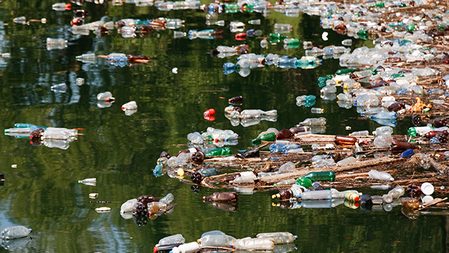
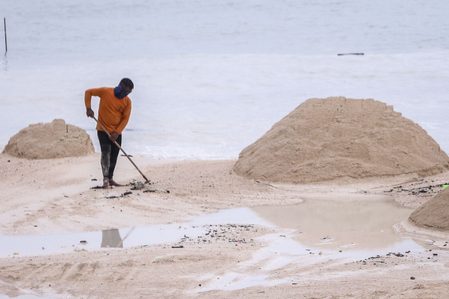
![[OPINION] ‘Hugas kamay’: Can we wash away greenwashing?](https://www.rappler.com/tachyon/2021/09/imho-greenwashing-October-4-2021.jpg?fit=449%2C449)
![[WATCH] In The Public Square with John Nery: Preloaded elections?](https://www.rappler.com/tachyon/2023/04/In-the-Public-Square-LS-SQ.jpg?resize=257%2C257&crop=414px%2C0px%2C1080px%2C1080px)
![[Newspoint] 19 million reasons](https://www.rappler.com/tachyon/2022/12/Newspoint-19-million-reasons-December-31-2022.jpg?resize=257%2C257&crop=181px%2C0px%2C900px%2C900px)

![[OPINION] The long revolution: Voices from the ground](https://www.rappler.com/tachyon/2022/06/Long-revolution-June-30-2022.jpg?resize=257%2C257&crop=239px%2C0px%2C720px%2C720px)
![[OPINION] I was called a ‘terrorist supporter’ while observing the Philippine elections](https://www.rappler.com/tachyon/2022/06/RT-poster-blurred.jpeg?resize=257%2C257&crop_strategy=attention)
![[OPINION] In a changing climate, how do we ensure safety and health at work?](https://www.rappler.com/tachyon/2024/04/Climate-change-safety-workers-April-25-2024.jpg?resize=257%2C257&crop_strategy=attention)
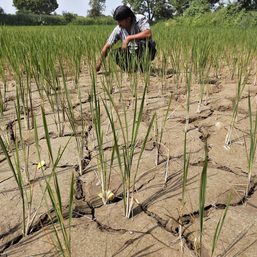
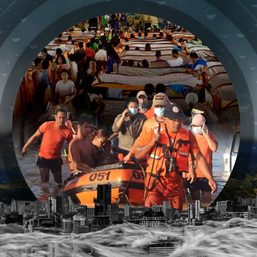
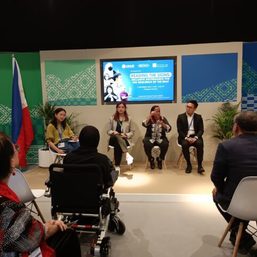
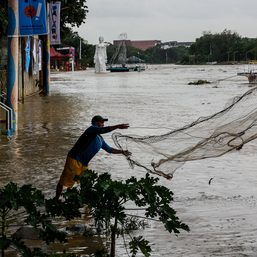
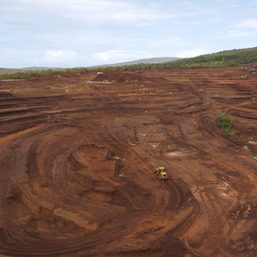
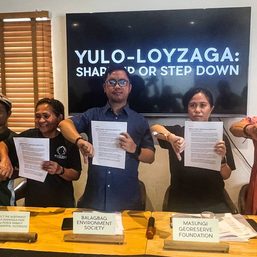
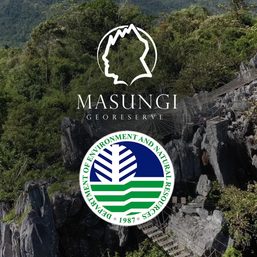
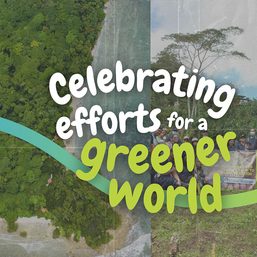
There are no comments yet. Add your comment to start the conversation.